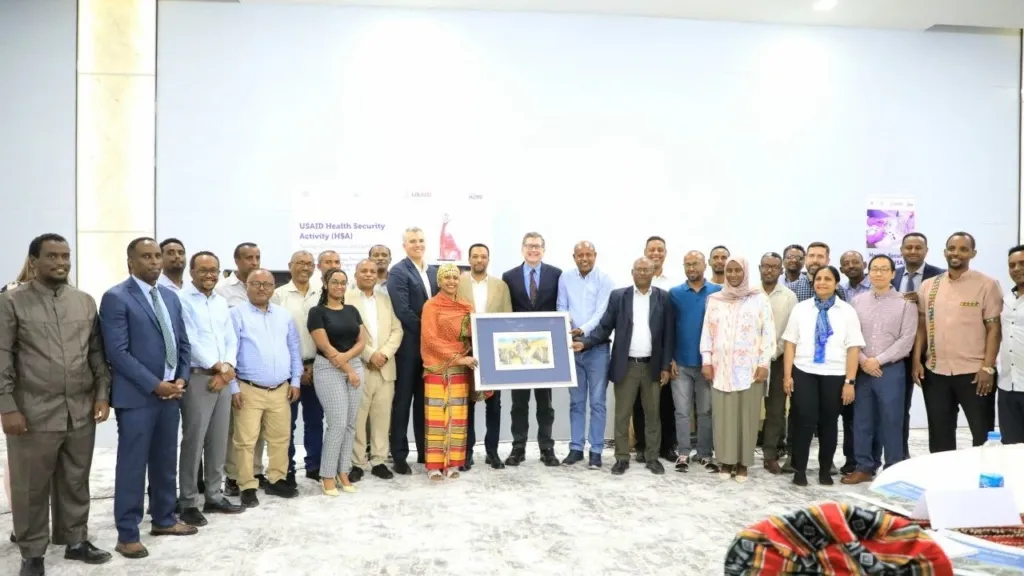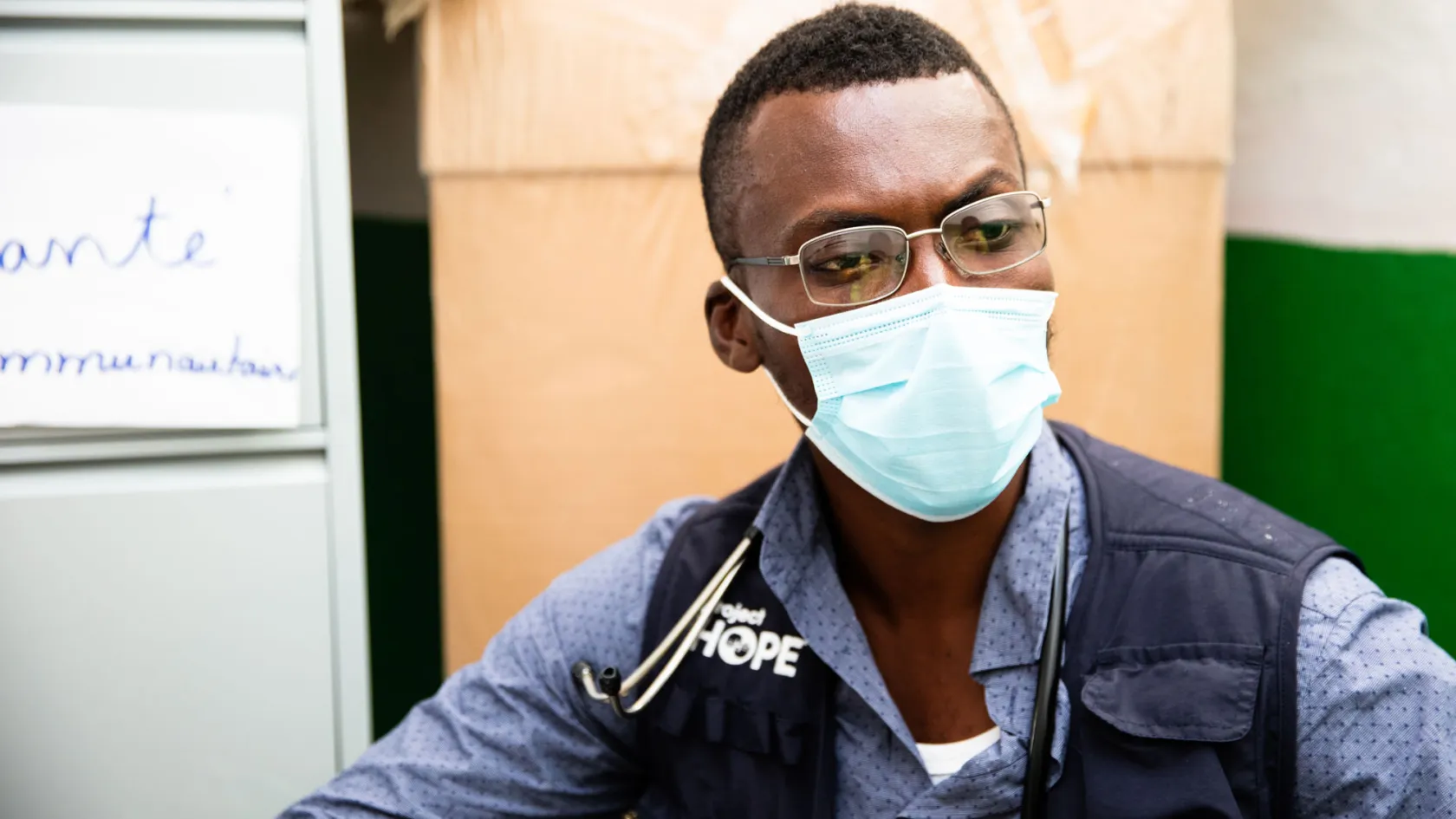Project HOPE Broadens Support for Clinics in Northwest Syria
Communities in northwest Syria are still recovering from the devastating February 2023 earthquakes, amid protracted conflict and a longstanding humanitarian crisis. In partnership with Syrian Relief and Development, Project HOPE is expanding our support to primary health clinics and a safe space for women and girls.
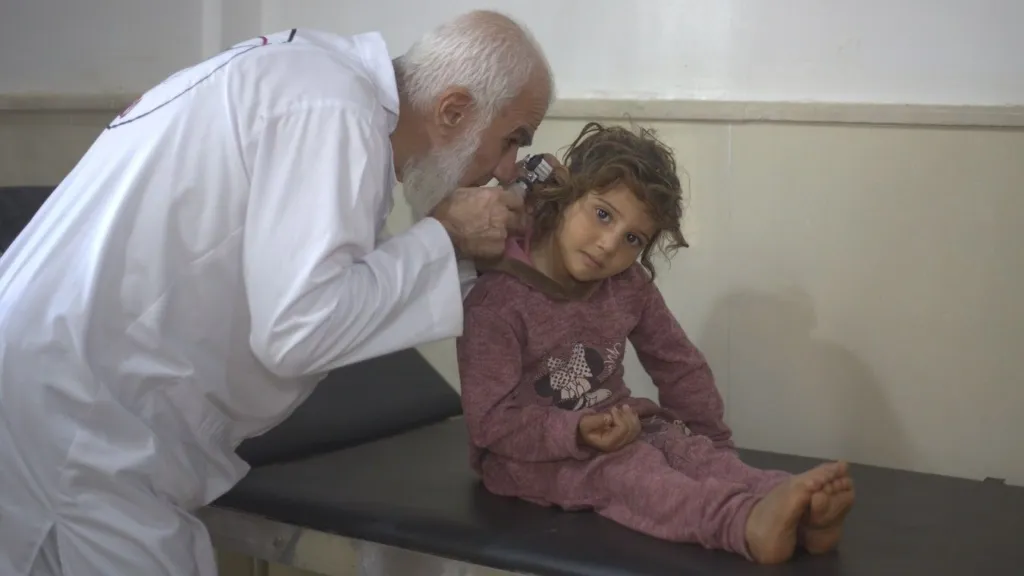
In Syria, communities are still feeling the fallout of the series of earthquakes that hit in February 2023. The earthquakes affected 8.8 million people, killing and injuring thousands and displacing at least 30,000 people in northwest Syria.
The disaster compounded an already desperate situation for Syrians who have lived through 12 years of conflict. Before February, an estimated 15.3 million people in Syria required humanitarian assistance, the highest number in the country’s history, and over 6.8 million people were already internally displaced — the highest number of IDPs in the world.
Now the situation is even more urgent, the needs even more dire.
“Before the earthquakes, the health system in northwest Syria was already under immense pressure due to the conflict,” says Havva Izgi, Project HOPE’s program officer for the Türkiye and Syria earthquake response. “The earthquakes further strained the system, causing damage to health care facilities and limiting access to essential medical services. Access to health facilities has become a critical issue.”
Project HOPE is working with partners to broaden our support for local health systems amid the ongoing crisis, concentrating on primary health care, mental health and psychosocial support (MHPSS), and essential health services for women and girls.
A Mobile Response to Ensure Continuity of Care
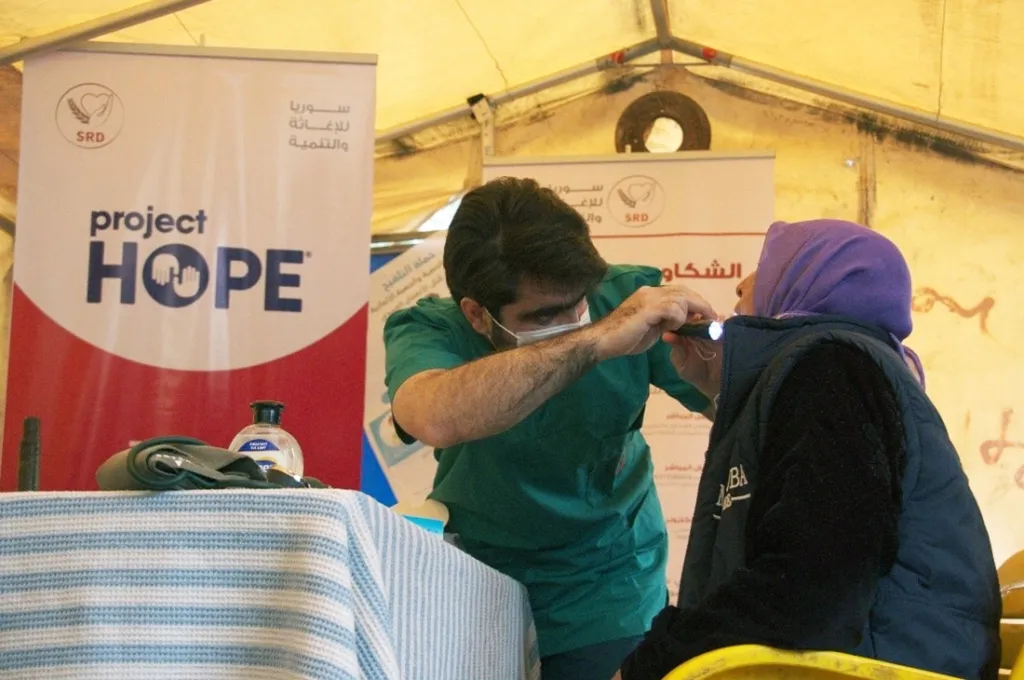
In the initial days after the earthquake, Project HOPE worked with local partners to reach affected communities with lifesaving and essential health services.
In partnership with Syrian Relief and Development (SRD), we supported two mobile medical units in providing 8,412 primary health care consultations to internally displaced people and host community members in the districts of Azaz and Daret Azza. Consultations included maternal and pediatric health care services, general medical care, and mental health care. We also delivered an interagency emergency health kit containing essential medicines, medical supplies, and equipment to support primary health care services.
“The collaboration between SRD and Project HOPE enabled SRD to maintain the provision of crucial health and protection and sustain the delivery of vital health and protection services to the most vulnerable populations in northern Syria,” says Dr. Mahmut Mahmutoğlu, Projects Coordinator at SRD. “This partnership became critical following the earthquake, as it allowed for the rapid mobilization of resources, expertise, and support to address the immediate and long-term needs of affected communities.”
The continuity of health care after the earthquake was critical for IDPs in the region, many of whom faced oncoming winter conditions without adequate shelter, and the basic needs of pregnant women, children, newborns, older citizens, and those with chronic diseases were met thanks to the MMUs.
Pivoting to Long-Term Support
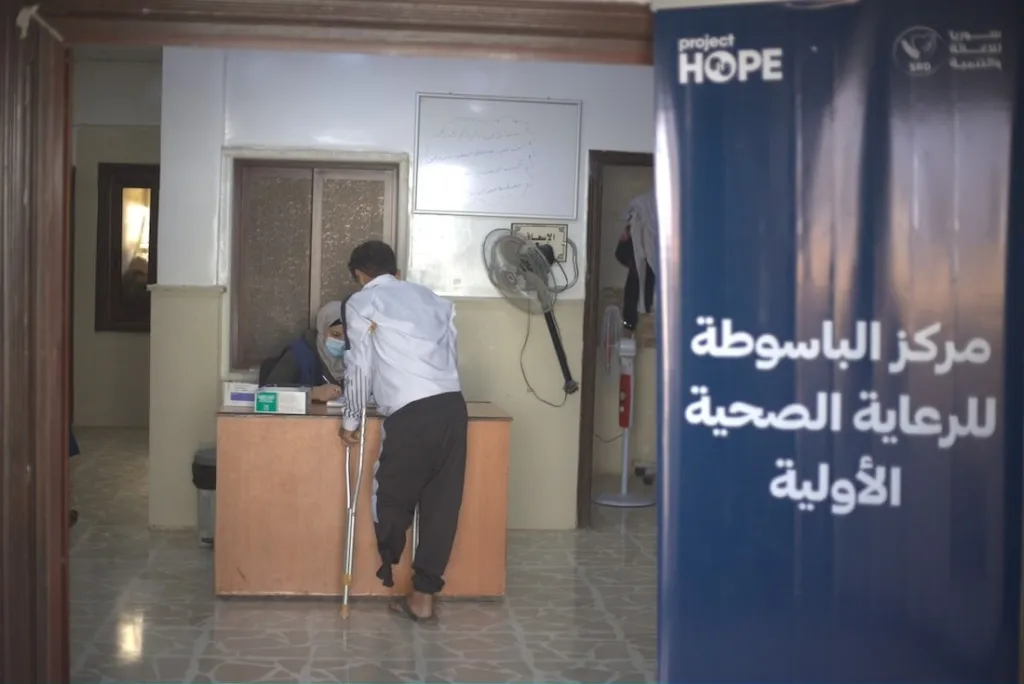
As Syria’s conflict persists and the disaster compounds civilian suffering, the need for primary health care is more acute than ever.
The need for mental health care is especially dire. Studies have shown that nearly half the population is experiencing severe mental disorders, in a place where mental health infrastructure is virtually nonexistent. As of March 2023, 1 million people in northwest Syria were in need of mental support, with only 24 psychologists and two psychiatrists in the region.
“Earthquakes often result in profound psychological impacts, engendering notable emotional distress, anxiety, depression, and the potential development of post-traumatic stress disorder among affected individuals,” Dr. Mahmutoğlu says.
In Syria, there is no recovery or idle time between disasters; earthquake survivors must struggle to cope with emotional wounds as they continue to live daily lives of trauma, uncertainty, and distress.
“Many people are still displaced and in the process of recovering from the earthquakes, facing difficulties in rebuilding their lives and homes,” Izgi says. “Displacement exacerbates psychological issues and undermines the sense of stability, which is the backbone of well-being. These mental health challenges are made worse by the ongoing conflict, and it is crucial to address them to prevent long-term consequences and support the overall well-being of the affected population.”
Project HOPE is supporting SRD as it continues to provide essential health services through primary health care centers in the villages of Kafr Safra, Basouta, and Al-Bil. These clinics now offer an expanded range of services, including medical health consultations, mental health support, maternal health, antenatal care, postnatal care, and referrals to higher levels of care. Each clinic is staffed by two doctors, three nurses, a pharmacist, a midwife, one mental health counselor, and two community health workers.
These facilities have already conducted consultations for more than 9,600 people living in northern Syria. It is anticipated that they will serve more than 35,000 by February 2024.

To further address mental health and protection needs, Project HOPE also helped SRD establish a safe space where women and girls can find counseling; psychosocial support; literacy and education lessons; vocational and skill training; and recreational and relaxation activities to help reduce stress. They can also access maternal health services at the center, including gender-based violence response services.
“The difference made by these safe spaces in northwest Syria is significant,” Dr. Mahmutoğlu says. “These activities will enhance the well-being and empowerment of women and girls. They reduce their vulnerability to violence by providing a protective environment and they help women and girls gain a sense of empowerment and self-reliance.”
The space is also a hub for awareness and advocacy, where community members can share their knowledge and experiences and participate in activities that help promote gender equality and women’s rights.
Centers like these will continue to be critical havens to help Syrian women and girls access the critical health support they need amid crisis and conflict.
“The combined efforts of SRD and Project HOPE have fostered community resilience, capacity building, and long-lasting positive impacts,” Dr. Mahmutoğlu says, “demonstrating the power of strategic partnerships in humanitarian response.”

